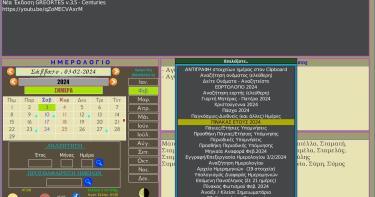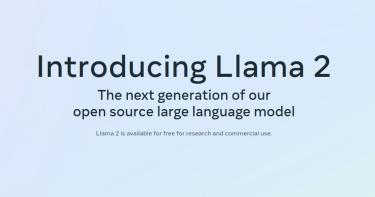Αναμφίβολα αυτό:
GREEDMOND, WA -- Bruised, battered, fined, and ridiculed over its fight for OOXML acceptance, Microsoft has decided it's had enough. The company is so angry with ISO that it has decided to form its own standard-setting organization.
"As the world's leading software company, we weren't very happy with the treatment meted out to us by ISO," complains company spokesperson Ican Leek. "ISO is too slow, explicit, and factual. We have several projects in the pipeline that are stalled because ISO likes to give people time to think. This is unacceptable."
Microsoft has now taken it upon itself to show how things are done -- by forming a new standards body. It expects its new body, called League of Extraordinary Standards (LES), to revolutionize computing. "It's the equivalent of Web 2.0 of the standards world, the missing link. With LES we'll do more. We'll connect users and suppliers like never before," says Leek
The company has already started selecting members for the organization. Calling the existing ISO system of selecting national members "corrupt," Microsoft claims its membership guidelines are "fairer to corporate and national users alike." So far Azerbaijan, Belarus, Bosnia and Herzegovina, Congo, Jamaica, and Tunisia have all signed up to be part of LES. "This group represents a healthy cross-section of the computing world," Leek maintains. "This is obviously a more inclusive body than the ISO, which is full of representatives from old-fashioned colonial powers like Norway, Switzerland, Canada, and Sri Lanka."
At a preliminary meeting held earlier this week, members of the new body met at Microsoft headquarters to hammer out a plan of action for the coming months. One of the items discussed was an update to ODF, which runs the risk of losing its status of being a standard when ISO is replaced by LES. But Leek believes ODF can be made compatible with OOXML despite the fact that the ODF developers "didn't leave enough room for innovation."
The new format, tentatively called ODF-PRO, is a "100% free, patented version of the old format that'll be free to use in any operating system as long as its Windows Vista or something more expensive." Calling backwards-compatibility a thing of the past, Leek says the new body is more concerned with interoperability between member countries. "Not all of them begin their week on Sundays," he says, "or use the standard European alphabet we prefer here at Microsoft headquarters. But that's okay. We'll teach them how to get along in the modern IT world, even if we have to give all the representatives free Zune music players and a few thousand shares of Microsoft stock to motivate them."
- Συνδεθείτε ή εγγραφείτε για να σχολιάσετε








Σχόλια
Κι άλλο ένα καλό:
Portage 2.1 to adopt RPM format for LSB compliance
In what will likely prove to be a controversial decision, Portage 2.1 will adopt the RPM format for all packages moving forward. The use of ebuilds will be deprecated in favor of the defacto RPM standard. The primary driver for this decision was to ensure compliance with the Linux Standard Base specification, which mandates RPM support for package management.
The developers have been hard at work to make this migration as easy as possible. Already a proof-of-concept ebuild2rpm script is in place and being tested by a pilot group of developers. Unfortunately, because of the architectural differences between the two formats, some features will not be supported once Gentoo moves to RPM. USE variables are one such feature; sandbox security is another. However, the added benefit brought about by full LSB compliance should far outweigh the loss of these two minor features.
Additionally, because of LSB's required library support, the xfree86 package will move to become part of the base Gentoo Linux system, rather than an optional addition. Users interested in learning more about the Linux Standard Base should read the LSB FAQ or the full LSB 1.3 specification.
http://www.gentoo.org/news/en/gwn/20030401-newsletter.xml#doc_chap1_sect2